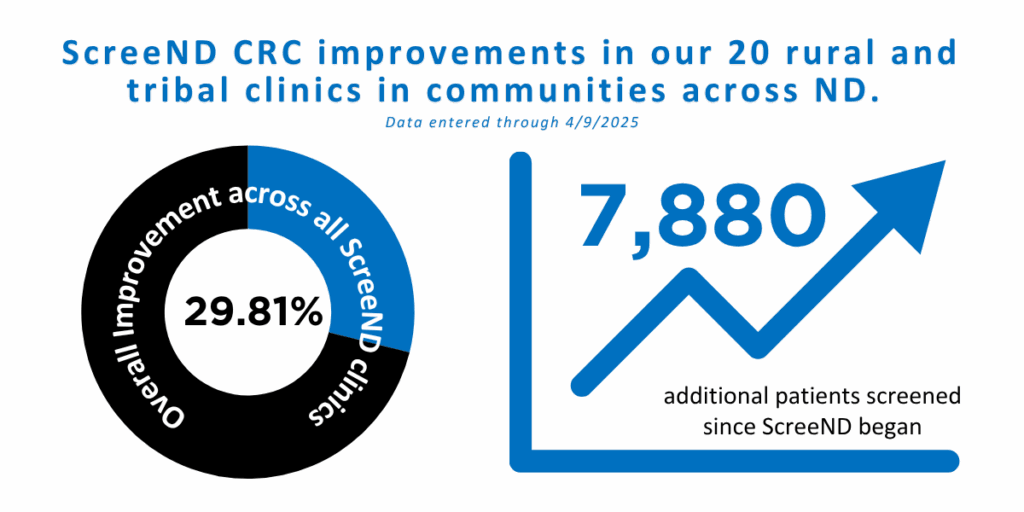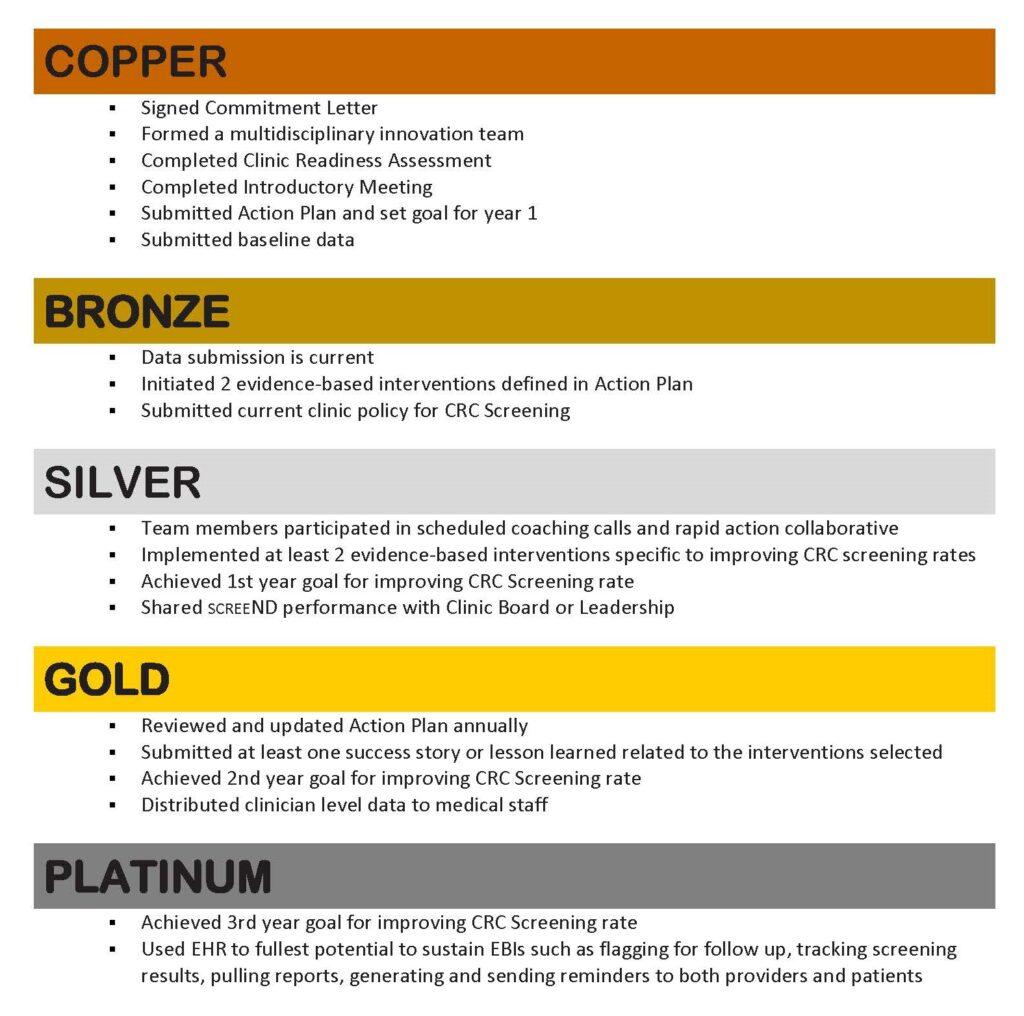
IMPACT REPORT
Colorectal cancer (CRC) is the second leading cause of cancer death among cancers that affect both men and women. Despite strong evidence of their effectiveness, CRC screening tests are underused. Under a grant from the Centers for Disease Control and Prevention (CDC), Quality Health Associates of North Dakota (QHA) is partnering with primary care clinics in North Dakota to increase CRC screening rates for rural, frontier and Native American populations. These efforts will work to reduce the incidence and late-stage diagnosis of colorectal cancer, increase the number of lives saved, and potentially impact 6,500 North Dakota residents who have not been screened for CRC.
In North Dakota there are significant disparities in colorectal cancer (CRC) screening rates between people residing in urban areas of the state and people, including a significant number of Native Americans, residing in rural and frontier counties. The statewide screening rate in North Dakota, according to the Behavioral Risk Factor Surveillance System (BRFSS) data, is 66.9 percent. However, population and geographic analysis tells a different story. Medicare data from 2018 confirms the average CRC screening rate for people aged 50-75 who reside in rural, frontier and reservation areas of North Dakota is 44 percent.
QHA’s strategy includes completion of comprehensive readiness assessments and development of clinic-specific action plans for implementing at least two evidence-based interventions to address CRC screening. QHA staff will provide both individual technical assistance and a rapid action collaborative structure. QHA will share resources, tools and materials; conduct frequent site visits and coaching calls to assess progress; identify barriers; and develop mitigation strategies. In the rapid-action collaborative, the clinics will work in small groups for education, identifying barriers and successes, and sharing best practices. QHA staff will help clinic staff leverage their electronic health records (EHRs) to collect and report CRC screening program measures.
QHA will assist participating clinics using the following strategies:
Milestones Program
QHA has established a Milestones program to recognize facility improvement throughout the life of the project. Staff will provide education, technical assistance and networking opportunities to support these efforts. Following are the requirements for each level of achievement:
QHA has established a Milestones program to recognize facility improvement throughout the life of the project. Staff will provide education, technical assistance and networking opportunities to support these efforts. Following are the requirements for each level of achievement:
QHA has established a Milestones program to recognize facility improvement throughout the life of the project. Staff will provide education, technical assistance and networking opportunities to support these efforts. Following are the requirements for each level of achievement:
QHA has established a Milestones program to recognize facility improvement throughout the life of the project. Staff will provide education, technical assistance and networking opportunities to support these efforts. Following are the requirements for each level of achievement:
QHA has established a Milestones program to recognize facility improvement throughout the life of the project. Staff will provide education, technical assistance and networking opportunities to support these efforts. Following are the requirements for each level of achievement:
QHA has established a Milestones program to recognize facility improvement throughout the life of the project. Staff will provide education, technical assistance and networking opportunities to support these efforts. Following are the requirements for each level of achievement:
QHA has established a Milestones program to recognize facility improvement throughout the life of the project. Staff will provide education, technical assistance and networking opportunities to support these efforts. Following are the requirements for each level of achievement:
QHA has established a Milestones program to recognize facility improvement throughout the life of the project. Staff will provide education, technical assistance and networking opportunities to support these efforts. Following are the requirements for each level of achievement:
QHA has established a Milestones program to recognize facility improvement throughout the life of the project. Staff will provide education, technical assistance and networking opportunities to support these efforts. Following are the requirements for each level of achievement:


